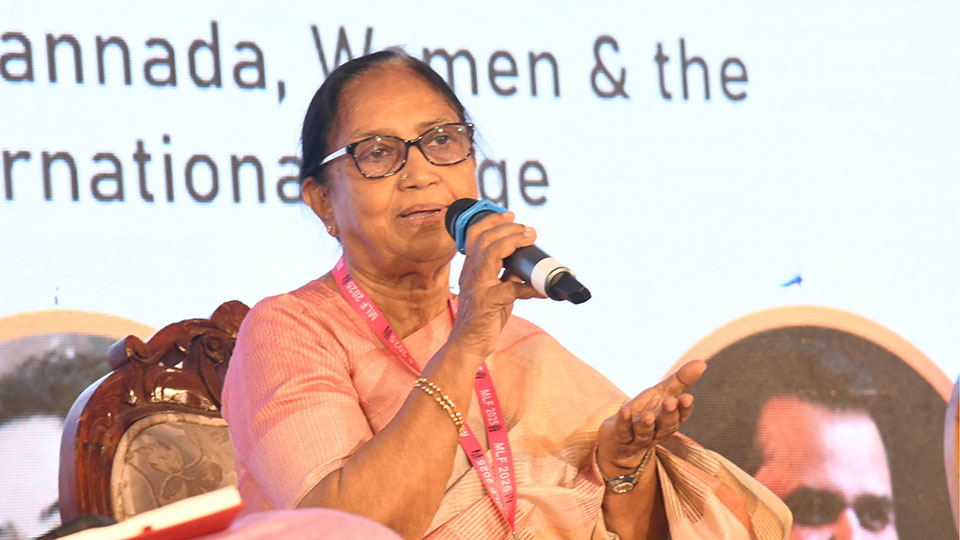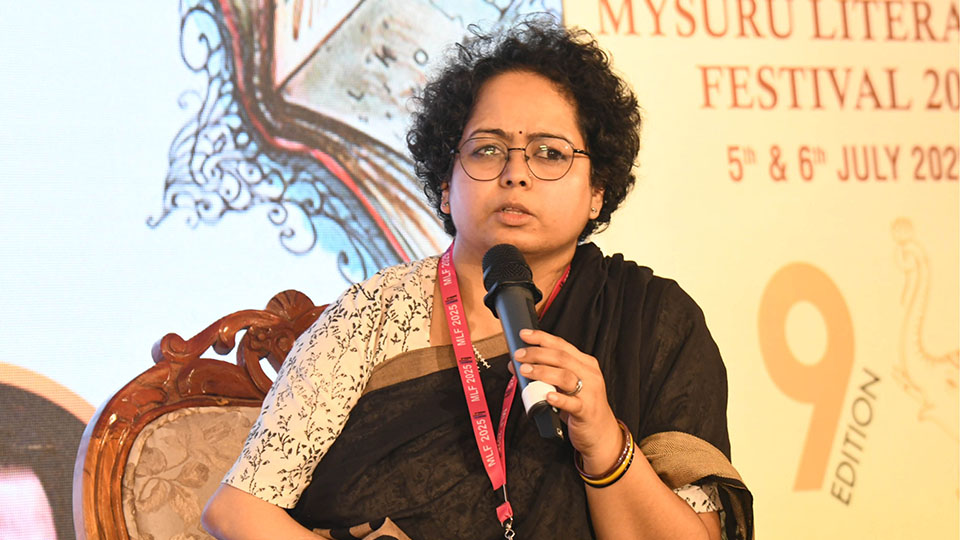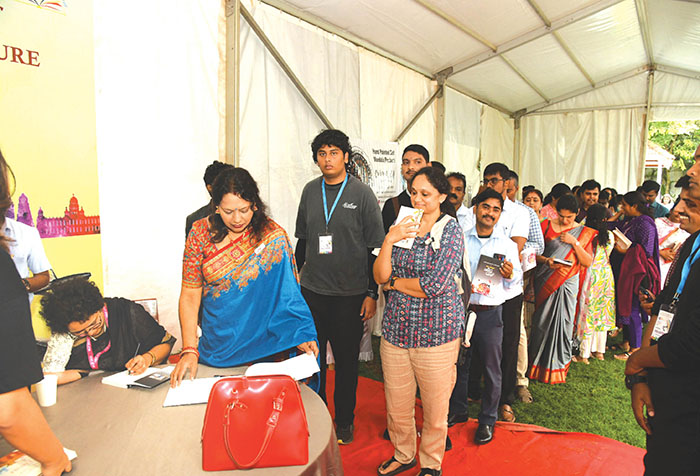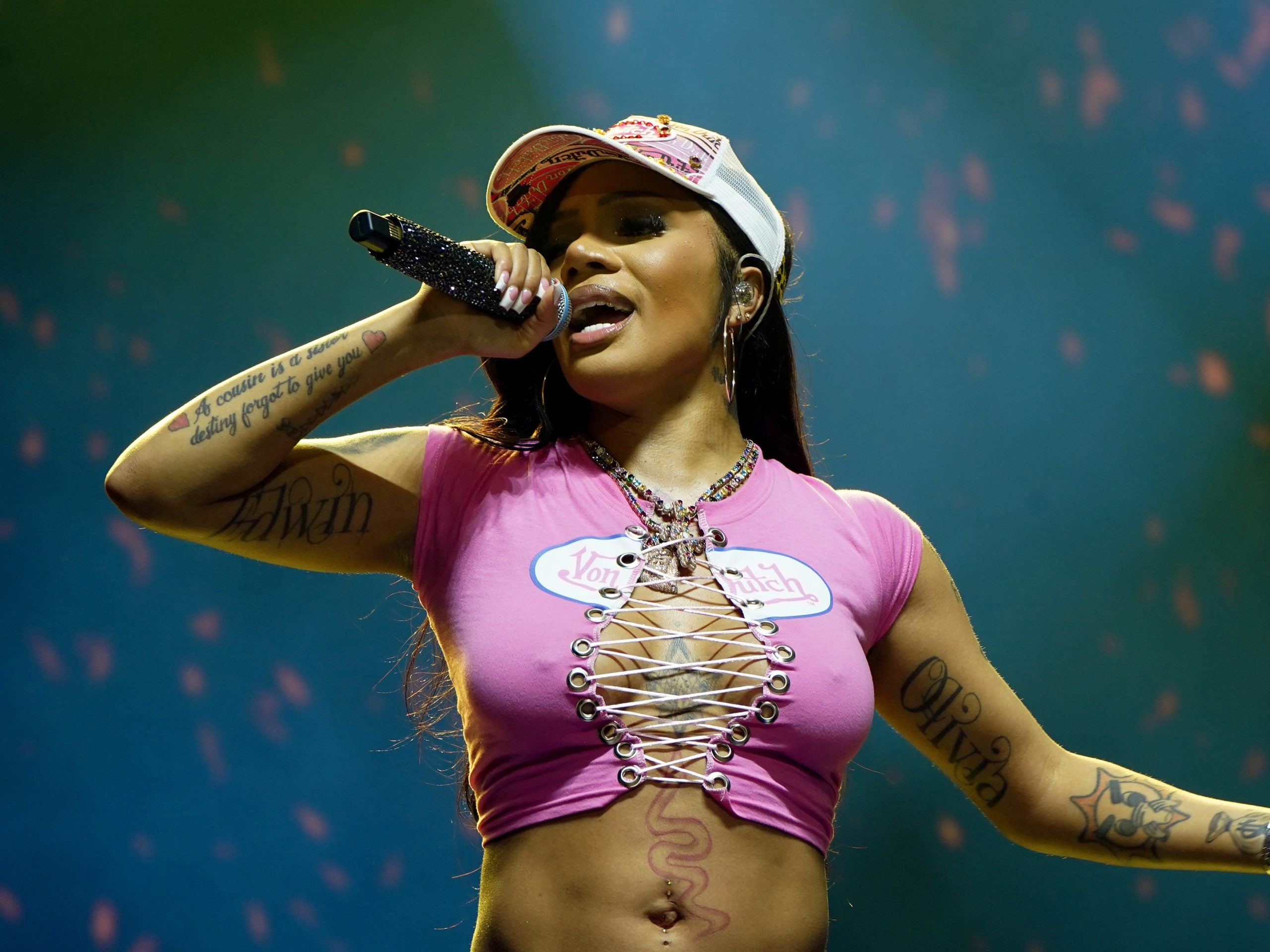Booker-winning celebrities engage in language discourse
: The opening session of the 9th set the tone for a thought-provoking weekend with a powerful conversation titled “Lighting the Way: Kannada, Women and the Booker’s International Stage.”
The panel featured Kannada litterateur Banu Mushtaq and acclaimed translator Deepa Bhasthi, winners of the 2025 International Booker Prize for ‘Heart Lamp’, a translated collection of short stories. The session was moderated by Bharath Diwakar.
Banu Mushtaq described the global recognition as “lightning in a night sky,” adding, “I am reliving the glory. Wherever I travel, I receive laurels, respect, recognition and love.”

Responding to a question on social change, she said, “My role is to portray the evils existing in society. Through my writing, I communicate clearly and powerfully with my readers. It is for policymakers to act on the change.”
Reflecting on her literary journey, Mushtaq praised Kannada as one of the most tolerant languages in India. “It gave me the courage to write in Kannada and speak in Dakkhani Urdu at home. With eight Jnanpith awardees and now a Booker, Kannada truly stands tall,” she remarked.

She also recalled facing threats for her progressive views. In 2000, she survived a knife attack following her advocacy for Muslim women’s right to enter mosques. “Men would come to my office with affidavits demanding I write only in Urdu,” she said, sharing how she once hid in her bathroom to escape an attacker.
Despite the challenges, Mushtaq remains unapologetically proud of her roots. “I studied in a Kannada-medium school. Even now, English is difficult for me. When I went to London, I was honest about this — I never felt ashamed and asked for a translator, and it worked well. Children from rural areas should never feel embarrassed about their language,” she urged.

Her translator, Deepa Bhasthi, spoke about the complexities of capturing the cultural nuances in Mushtaq’s stories. “Her themes are universal, but understanding the context was challenging as I don’t belong to her community. I consulted Banu frequently, especially on religious and social intricacies. Translating is a deeply immersive task — you must think in two languages and truly get into the writer’s mind,” she explained.










